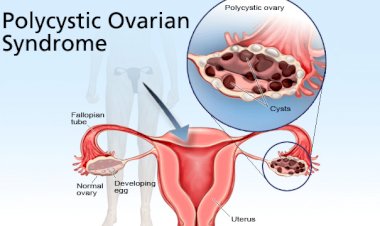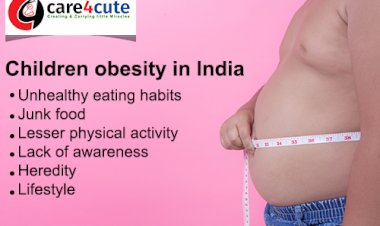Understanding Mid Parental Height: Calculation and Importance for Indian Children
Discover the significance of mid parental height in assessing the growth of Indian children. Learn about calculation methods and factors influencing height prediction.
In the realm of pediatric growth assessment, mid parental height plays a significant role. It is a predictive measure that helps estimate the expected adult height of a child based on their parents' height. This article aims to provide a comprehensive understanding of mid parental height, its calculation method, and its importance specifically for Indian children.
Table of Contents
1. What is Mid Parental Height?
2. How is Mid Parental Height Calculated?
3. The Importance of Mid Parental Height for Indian Children
4. Factors Affecting Mid Parental Height
5. Role of Nutrition in Influencing Mid Parental Height
6. Genetics and Mid Parental Height
7. Cultural and Ethnic Considerations
8. Potential Limitations of Mid Parental Height
9. Mid Parental Height: A Tool for Growth Monitoring
10. Genetic Counseling and Mid Parental Height
11. Medical Interventions to Support Growth
12. Psychological Impact of Height on Children
13. Tips for Parents to Support Optimal Growth
1. What is Mid Parental Height?
Mid parental height, also known as target height, refers to the predicted adult height of a child based on the heights of their biological parents. It serves as an estimation rather than an exact measurement and can provide valuable insights into a child's growth potential.
2. How is Mid Parental Height Calculated?
The calculation of mid parental height involves a simple formula. For boys, the formula is [(Father's Height + Mother's Height + 5) / 2], and for girls, it is [(Father's Height + Mother's Height - 5) / 2]. This calculation accounts for the fact that, on average, boys tend to be slightly taller than girls.
3. The Importance of Mid Parental Height for Indian Children
Mid parental height holds particular significance for Indian children due to the country's diverse genetic makeup and cultural variations. Understanding a child's potential height can assist parents, healthcare professionals, and educators in monitoring their growth trajectory and making informed decisions regarding their development.
4. Factors Affecting Mid Parental Height
Several factors can influence mid parental height, including genetic inheritance, nutrition, hormonal imbalances, and overall health. It is essential to consider these factors while interpreting mid parental height calculations and setting growth expectations.
5. Role of Nutrition in Influencing Mid Parental Height
Proper nutrition, especially during childhood and adolescence, plays a crucial role in supporting optimal growth. A well-balanced diet that includes essential nutrients like proteins, vitamins, minerals, and calcium is vital for achieving the potential height predicted by mid parental height calculations.
6. Genetics and Mid Parental Height
Genetic factors strongly influence mid parental height. Children inherit genes from both parents, and the combination of these genetic factors determines their growth potential. However, it's important to note that while mid parental height provides an estimation, variations can occur due to the complex nature of genetic inheritance.
Read more: Exploring the Benefits of Yoga for Children: A Guide to Age-Appropriate Practice
7. Cultural and Ethnic Considerations
In the context of Indian children, cultural and ethnic factors can contribute to variations in growth patterns. Different regions within India have distinct genetic backgrounds and dietary practices that can influence mid parental height predictions. Understanding these variations is crucial for accurate growth assessment.
8. Potential Limitations of Mid Parental Height
While mid parental height calculations can provide valuable insights, it is essential to acknowledge their limitations. Factors such as delayed growth & puberty, underlying medical conditions, and environmental factors can affect a child's ultimate height, potentially deviating from the predicted mid parental height. Therefore, it is crucial to consider mid parental height as just one aspect of growth assessment and not the sole determinant.
9. Mid Parental Height: A Tool for Growth Monitoring
Mid parental height serves as a valuable tool for monitoring a child's growth trajectory over time. By comparing their actual height to the predicted mid parental height, healthcare professionals can identify potential growth concerns or deviations from the expected pattern. Regular monitoring allows for timely interventions and personalized care to optimize growth potential.
10. Genetic Counseling and Mid Parental Height
Genetic counseling plays a vital role in understanding mid parental height and its implications. Genetic counselors can help parents interpret mid parental height calculations, provide insights into the potential growth patterns, and address any concerns related to genetic factors influencing height. This guidance can empower parents to make informed decisions regarding their child's growth and development.
11. Medical Interventions to Support Growth
In cases where a child's height deviates significantly from the predicted mid parental height or falls below the growth percentile, medical interventions may be considered. Growth hormone therapy, nutritional supplementation, and other targeted treatments can be recommended by healthcare professionals to support optimal growth and address any underlying medical conditions affecting height.
12. Psychological Impact of Height on Children
Height can have a profound impact on a child's psychological well-being and self-esteem. It is important for parents, educators, and society to foster a supportive environment that promotes body positivity and emphasizes individual strengths beyond physical attributes. Open communication and encouragement can help children navigate any challenges associated with height-related self-image.
13. Tips for Parents to Support Optimal Growth
-
Ensure a balanced diet rich in nutrients necessary for growth.
-
Encourage regular physical activity and exercise.
-
Promote healthy sleep habits to support growth and development.
-
Monitor growth patterns and consult healthcare professionals for any concerns.
-
Foster a positive body image and promote self-confidence in children.
Conclusion
Mid parental height serves as a valuable tool for estimating a child's potential adult height based on their parents' heights. In the context of Indian children, understanding mid parental height can provide insights into growth patterns influenced by genetics, nutrition, and cultural factors. While mid parental height calculations have limitations, they contribute to growth monitoring and assist in making informed decisions regarding a child's development. By considering mid parental height alongside other growth indicators, healthcare professionals and parents can optimize strategies for supporting optimal growth and overall well-being.






































Comments (0)